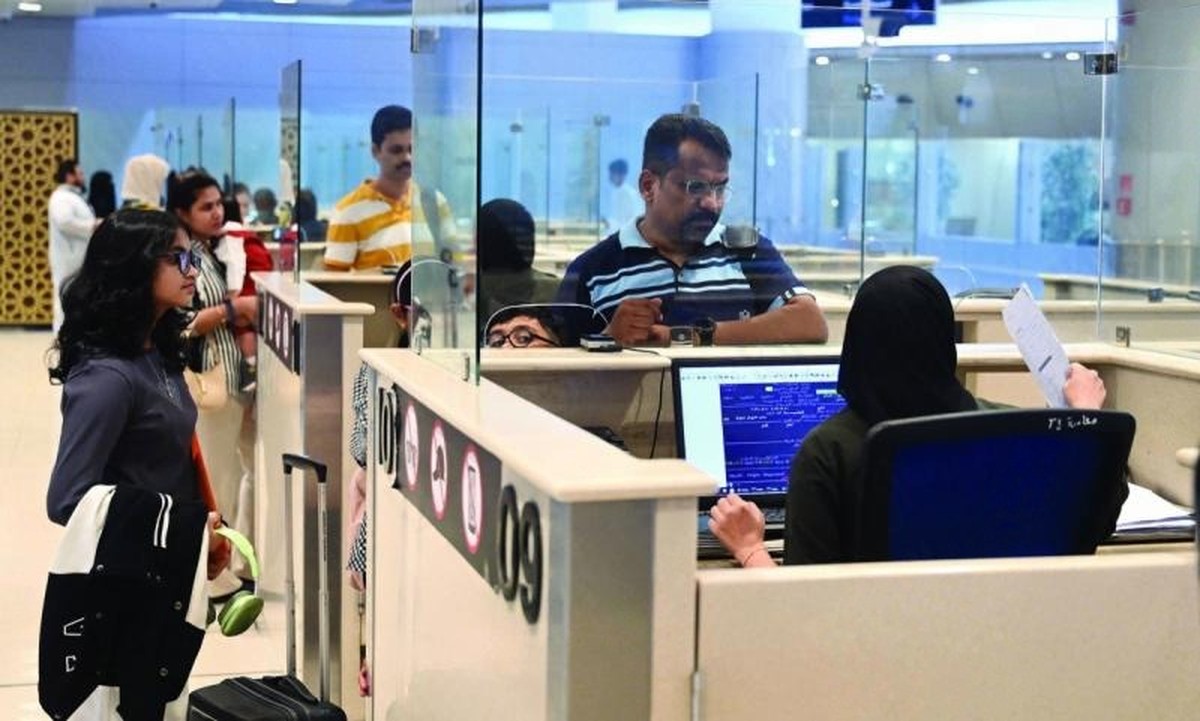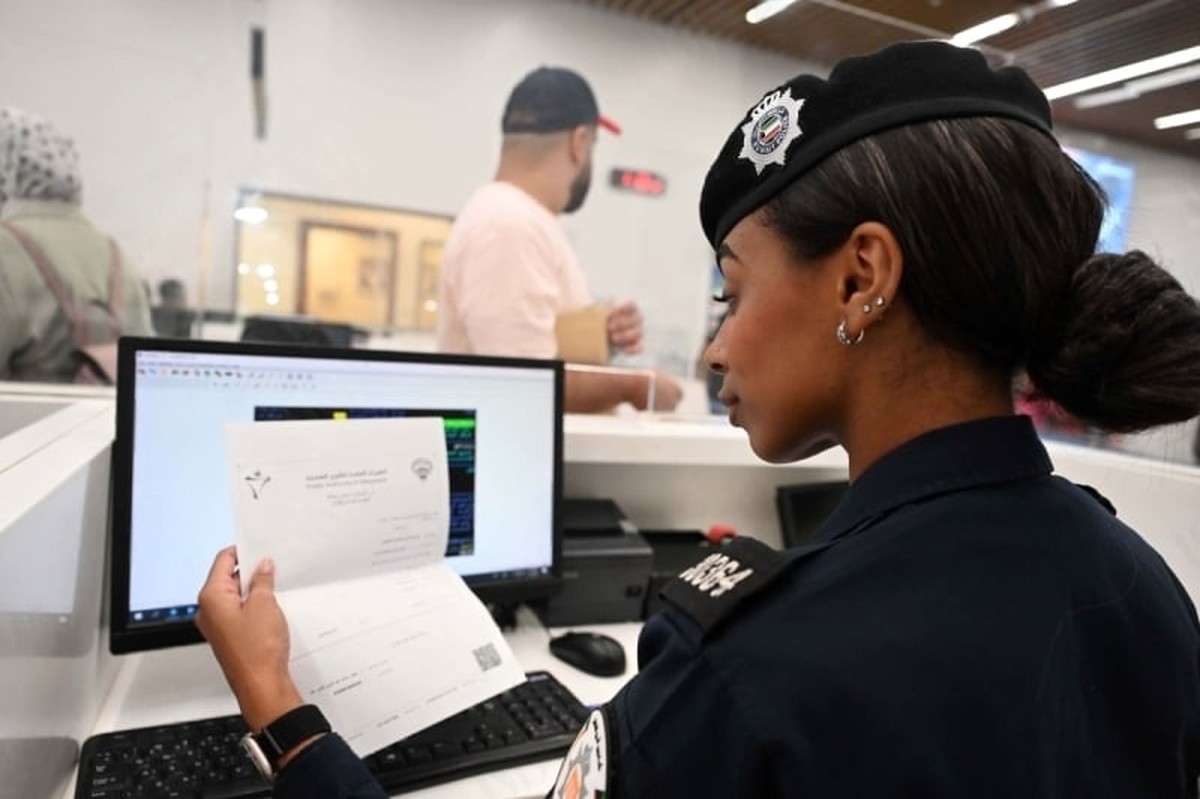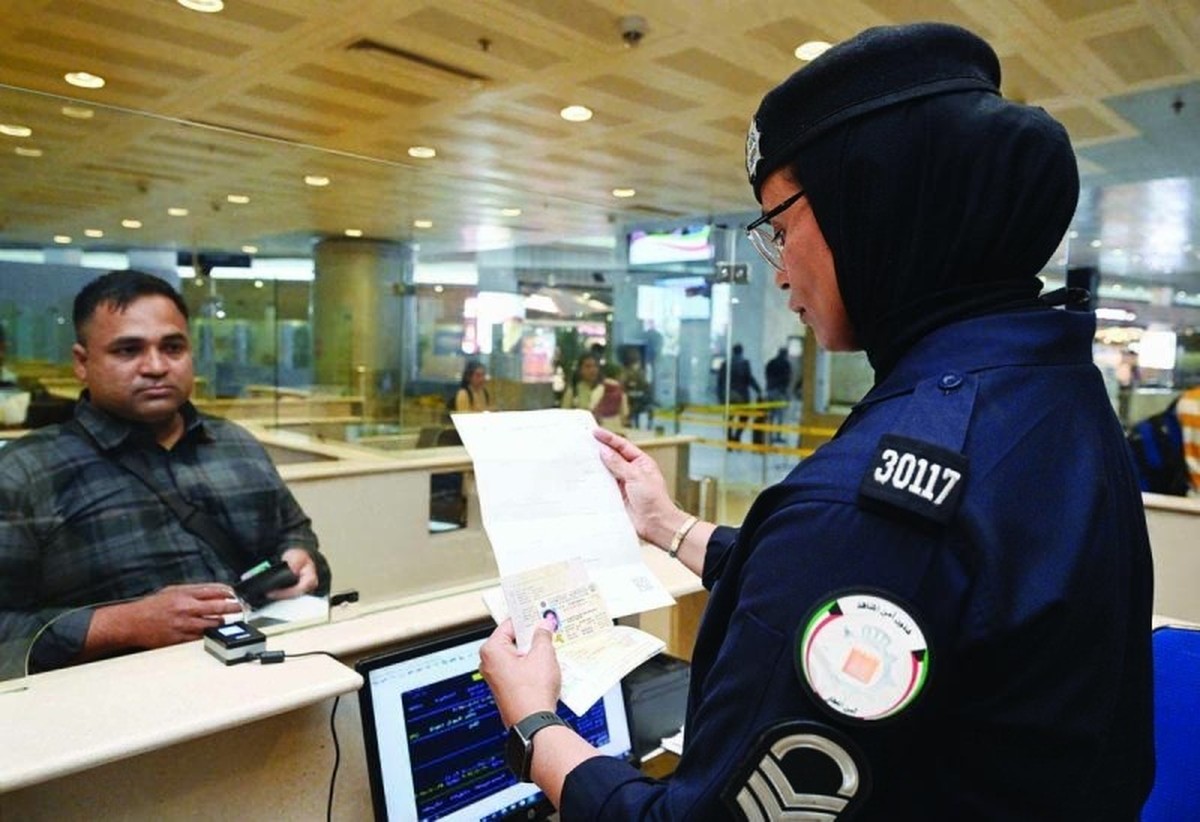01/07/2025
01/07/2025

KUWAIT CITYThe first day of enforcing the new exit permit system for private sector expatriate workers under Article 18 was executed with remarkable efficiency, as travelers passed through Kuwait International Airport without major disruptions.
Interior Ministry personnel, particularly those at passport control, managed the new procedures with precision, easing initial public concerns about potential delays or complications. Travelers expressed satisfaction with the swift processing, many describing their experience as “smooth and stress-free.” Smiles, praise, and a sense of relief marked the day’s atmosphere.
According to security sources, the Passport Security Department had conducted extensive preparations in anticipation of the rollout. Personnel were trained to manage all scenarios, including cases where travelers were unfamiliar with the new electronic system. Thanks to this foresight, the exit process took only moments once employer approval was confirmed.
At Terminal 1 at Kuwait International Airport observed fluid an organized movement was observed at the immigration counters. In most cases, passport stamping took less than a minute after confirming the absence of any travel restrictions and verifying the electronic exit permit.
Several passengers confirmed that although they brought printed copies of their exit permit forms, passport officers did not require them, as the data was already integrated into the electronic system. Travelers praised the professionalism of passport staff and noted that the new procedure had not restricted their freedom but rather protected the rights of both employees and employers.

Colonel Yousef Al-Hawlan, Head of the Private Aviation Ports Department, explained that an electronic link was established between the Public Authority for Manpower (PAM) and the Ports Administration. This digital connection allows permits to appear automatically in the system, eliminating the need for physical paperwork. An emergency task force is also on standby to manage any technical issues.
Al-Hawlan emphasized that while many residents still arrive at passport control with printed forms, officers typically confirm the approval using personal data entered into the system. In cases where the system doesn’t reflect the permit, the barcode on the applicant’s phone is scanned for confirmation.
He noted that the exit permit process takes just minutes once employer approval is granted and remains valid for seven days. On launch day, around 20,000 travelers were processed—most of them expatriate workers. The new requirement excludes dependents (wives and children under family residency) and domestic workers under Article 20.

To avoid delays and congestion, authorities coordinated with the Directorate General of Civil Aviation and airlines to ensure that boarding passes are only issued once a valid departure permit is confirmed. This move aims to prevent last-minute issues at passport control and protect travelers from losing flights or tickets.
Al-Hawlan acknowledged that some residents, particularly those unfamiliar with digital tools, face difficulties using the new system. In such cases, the employer can issue the permit via the Sahel or Ashal applications. Travelers can then proceed directly to the airport, where their data is already logged into the system.
Exit Permit Stats and System Performance
The Public Authority for Manpower confirmed strong adoption of the new system:
- 35,000 exit permits have been issued to private sector workers so far.
- 22,000 applications were received between June 12 and 29.
- 13,000 applications were submitted on June 30 alone.
- Only one complaint regarding the system was registered, which has since been resolved.
Officials view the launch as a success, marking a key step in Kuwait’s efforts to enhance labor market governance and streamline travel procedures for expatriates through digital transformation.


